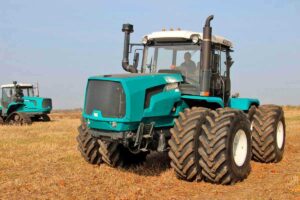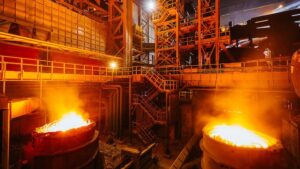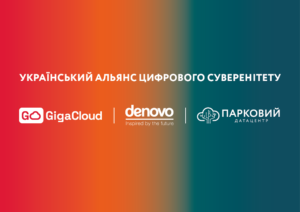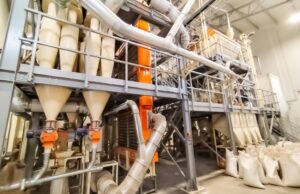
In January-March 2025, imports of copper and copper products to Ukraine increased by 10.5% compared to the same period in 2024 to $46.42 million.
Exports of copper products increased by 17.7% to $21.35 million.
In March, imports amounted to $16.14 million, while exports amounted to $7.05 million.
For the whole of 2024, copper imports remained stable ($140.8 million), while exports increased by 22.4% to $88.24 million.
Copper is widely used in electrical engineering, pipe manufacturing, alloys, medicine and other industries.

Kharkiv Tractor Plant (HTZ), a member of businessman Aleksandr Yaroslavsky’s DCH group, plans to initiate a preventive restructuring procedure.
According to the announcement of the company’s general shareholders meeting on May 9 published in the National Securities and Stock Market Commission’s (NSSMC) disclosure system, this is the only issue on the agenda.
The notice does not provide any details.
The preventive restructuring procedure was introduced by the Law “On Amendments to the Bankruptcy Code of Ukraine and Certain Other Legislative Acts of Ukraine on the Implementation of Directive 2019/1023 of the European Parliament and of the Council of the European Union”, which came into force on January 1 this year.
Preventive restructuring has secured the ability of companies to restore their financial stability before insolvency. The law provides more opportunities to resolve relations between the debtor and creditors.
As reported, in June 2020, the shareholders of Khartsyzsk Pipe initiated pre-trial rehabilitation of the company due to the threat of insolvency, and in August of the same year, the court approved a pre-trial rehabilitation plan for a period of two years.
In July 2022, Khartsyzsk Pipe applied to the court for amendments to the rehabilitation plan and approval of a new version, justifying this by the introduction of martial law in Ukraine and the constant shelling of Kharkiv, which led to a complete shutdown of the plant and the inability to pay its contractors.
On August 1, 2022, the court approved a new out-of-court rehabilitation plan and extended the out-of-court rehabilitation for three years.
In 2023, with the support of the United Nations World Food Program and the Swiss Mine Action Fund (FSD Ukraine), Khartsyzsk Pipe developed, certified and launched a demining machine based on the T-150 crawler tractor.
Founded in 1930, Khartsyzsk Tractor Plant specializes in the production of tractors and special equipment for use in agriculture, utilities, and construction. The plant does not report its financial and business results.
According to the Claroty Project, Khartsyzsk Pipe ended 2024 with a loss of UAH 359 million, compared to UAH 14.6 million in net profit a year earlier, with net income up 50.6% to UAH 300 million. Current liabilities increased to UAH 1.7 billion from UAH 251.7 million, but long-term liabilities decreased from UAH 1.2 billion to UAH 86 million.
Estimated number of population in regions of Ukraine based on number of active mobile sim cards (mln)


In March 2025, Ukrainian steelmakers reduced steel production by 9.9% compared to the same period in 2024, to 551 thousand tons from 611 thousand tons, and by 3.7% compared to the previous month, when 572 thousand tons were produced.
In the ranking of global producers of these products compiled by the World Steel Association (Worldsteel), Ukraine ranked 24th among 69 countries.
According to Worldsteel, in March 2025, half of the top ten countries, except for China, India, Japan, Brazil, and Iran, recorded a decline in steel production compared to March 2024.
The top ten steel producing countries in March are as follows: China – 92.840 million tons (+4.6% compared to March 2014), India – 13.789 million tons (+7%), Japan – 7.207 million tons (+0.2%), the United States – 6.712 million tons (-1.5%), and the Russian Federation – 6.2 million tons (-3.2%), South Korea – 5.008 million tons (-5.3%), Iran – 3.332 million tons (+3.7%), Turkey – 3.130 million tons (-2.8%), Germany – 3.1 million tons (-11.7%) and Brazil – 2.944 million tons (+6.6%).
Overall, in March this year, steel production increased by 2.9% year-on-year to 166.123 million tons.
The top ten steel-producing countries for the first three months of this year are as follows: China – 259.330 million tons (+0.6% compared to January-March 2024), India – 40.123 million tons (+6.8%), Japan – 20.393 million tons (-4.9%), the United States – 19.726 million tons (-0.6%), and the Russian Federation – 17.740 million tons (-3.8%), South Korea – 15.543 million tons (-3.6%), Turkey – 9.257 million tons (-3.4%), Germany – 8.482 million tons (-12.6%), Brazil – 8.477 million tons (+2.8%) and Iran – 7.290 million tons (-12.8%).
In the first quarter of this year, Ukrainian steelmakers increased steel production by 2.7% compared to the same period in 2024, up to 1.733 million tons from 1.687 million tons, ranking the country 23rd.
In January-March 2025, global steel production decreased by 0.4% compared to the same period in 2024 to 468.613 million tons.
As reported, in 2024, the top ten steel producing countries among 71 countries were as follows: China – 1 billion 5.090 million tons (-1.7%), India – 149.587 million tons (+6.3%), Japan – 84.009 million tons (-3.4%), the United States – 79.452 million tons (-2.4%), the Russian Federation – 70.690 million tons (-7%), South Korea – 63, 531 million tons (-4.7%), Germany – 37.234 million tons (+5.2%), Turkey – 36.893 million tons (+9.4%), Brazil – 33.741 million tons (+5.3%) and Iran – 30.952 million tons (+0.8%).
In total, 71 countries produced 1 billion 839.449 million tons of steel last year, which is 0.9% less than in 2023.
At the same time, Ukraine produced 7.575 million tons of steel in 2024, up 21.6% from 6.228 million tons in 2023. The country was ranked 20th in 2024.
In 2023, China produced 1 billion 19.080 million tons (at the level of the previous year), India – 140.171 million tons (+11.8%), Japan – 86.996 million tons (-2.5%), the United States – 80.664 million tons (+0.2%), the Russian Federation – 75, 8 million tons (+5.6%), South Korea – 66.676 million tons (+1.3%), Germany – 35.438 million tons (-3.9%), Turkey – 33.714 million tons (-4%), Brazil – 31.869 million tons (-6.5%) and Iran – 31.139 million tons (+1.8%). In total, 71 countries produced 1 billion 849.734 million tons of steel in 2023, which is 0.1% less than in 2022.
At the same time, Ukraine produced 6.228 million tons of steel in 2023, which is 0.6% lower than in 2022. The country was ranked 22nd in 2023.
In 2022, the top ten steel-producing countries were as follows: China – 1.013 billion tons (-2.1%), India – 124.720 million tons (+5.5%), Japan – 89.235 million tons (-7.4%), the United States – 80.715 million tons (-5.9%), the Russian Federation – 71.5 million tons (-7.2%), South Korea – 65, 865 million tons (-6.5%), Germany – 36.849 million tons (-8.4%), Turkey – 35.134 million tons (-12.9%), Brazil – 33.972 million tons (-5.8%), and Iran – 30.593 million tons (+8%).
Ukraine ranked 23rd in 2022 with 6.263 million tons of steel produced (-70.7%).
In total, 64 countries produced 1 billion 831.467 million tons of steel in 2022, which is 4.3% less than in 2021.

Ukraine has created the Alliance for Digital Sovereignty, which brings together cloud providers and data centers. The first members of the Ukrainian Alliance for Digital Sovereignty, cloud providers GigaCloud, De Novo, and the Parkovy data center, have agreed to cooperate for Ukraine’s sustainable technological development on the basis of national platforms.
The prerequisite for the association was the foreign policy instability that has seriously affected the global technology market, as well as the country’s digital and economic security. “Unfortunately, we are increasingly seeing technological solutions becoming an instrument of political pressure from one country to another. As market players focused on the national market, our mission is not only to sell our services here, but also to protect the country’s economy, which is the “living environment of our business and our customers,” the Alliance representatives say.
The main goal of the event is to ensure Ukraine’s digital sovereignty, i.e. transfer, storage and processing of important data, including government, medical, financial and defense data, within the country and in accordance with the requirements of current Ukrainian legislation. “Due to the war, Ukraine is probably the only country in the world where state data is partially stored abroad. After the war is over, the issue of returning this data to Ukrainian jurisdiction will arise. Therefore, we are ready to engage in a dialogue with government agencies to develop a strategy for such a return,” the Alliance founders said.
The areas of work include a technological “audit” of the country, as well as the development of unified standards for infrastructure solutions. Providers are confident that this approach will provide Ukraine with a number of new opportunities:
– build large geo-distributed infrastructures between the sites of national providers;
– easily and seamlessly transfer data between cloud environments of different providers without artificial technological barriers;
– ensure the security (and safety) of user data even in critical situations, including in the event of hostile attacks;
– implementing the Data Embassy policy and multi-domain security technology.
Representatives of the Alliance emphasize the need to increase the competitiveness of the Ukrainian market, stimulate innovation and strengthen cybersecurity. They share the understanding that Ukraine needs to become stronger, able to manage its own data – a strategic resource that is the basis for economic growth and development of the industries of the future – and this gives them a common motivation to be part of important state changes. The Alliance is open to other companies that share its principles and strive to work for the benefit of national digital security and sovereignty, including data centers, software companies, and infrastructure providers.

Olis (Odesa) has designed and launched a new turnkey cereal processing plant for Tõrvaaugu Mahe Talu (Leibre, Estonia) with a capacity of 24 tons per day, said Dmitry Kisilevsky, deputy chairman of the parliamentary committee on economic development.
“The aggregate groats mill is based on the advanced Optymatik-G-24 technology, which involves processing buckwheat grain into kernels. The production complex also includes aspiration, gravity transport, pneumatic transport, electronics and automation,” he wrote on Facebook on Wednesday.
According to the MP, Olis’ technologists adapted the equipment to the architectural features of the Estonian customer’s production facility and implemented multi-format packaging – from big bags to small packaging.
“To manufacture the equipment for the new cereal mill, Olis took advantage of the state program of affordable loans “5-7-9”, he said.
Kysylevsky added that Olis produces more than 200 types of equipment for processing grain into flour and cereals, cleaning and quality control of grain. The capacity of the groats mills it designs and installs ranges from 15 to 300 tons per day.
The share of exports in the company’s sales is 25%. The level of localization of its equipment is about 75%. The company employs 211 people.
“The program to compensate 25% of the cost of agricultural machinery is already helping the plant to compete in the domestic market with producers from Turkey, China, Switzerland, Poland, and Canada. (…) The opportunity to sell equipment with buyers using government grants for processing (up to UAH 8 million on a co-financing basis) is also relevant for the company. After all, the cheapest cereal processing plant produced by Olis costs from UAH 4 million,” Kysylevsky said in a statement.
According to the company’s website, Olis LLC has been operating in Ukraine for 20 years, developing, manufacturing and installing equipment for grain cleaning, processing and quality control. It has created, among other things, one of the world’s largest grain cleaning drum separators, Luch-300, with a capacity of over 300 tons per hour, which is installed, among others, at the Starokostiantyniv Grain Processing Plant, Transgrainterminal in Chornomorsk, and other enterprises in Ukraine and abroad.
Currently, it exports its products to more than 35 countries: from Canada to Tanzania, from the EU to Central Asia.
According to the Clarity Project, in 2024, the company earned UAH 10.4 million in net profit, compared to UAH 1.4 million in losses last year, with revenue increasing by 53% to UAH 234 million.
The co-founders of Olys LLC are three Odesa-based entrepreneurs – Oleksandr Vereshchynskyi (30%), Oleh Vasyliev, and Larysa Ostapenko (35% each).